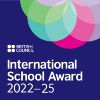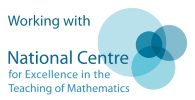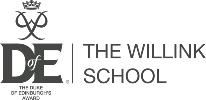Social Science
Key Staff
- Miss N. Flipping - Head of Department
- Mrs W. Czekaj
- Miss Harrison
- Dr Gleeson-Khan
- Mrs Obsiye
Psychology
We will follow the AQA specification. You can visit their website at www.aqa.org.uk.
During Year 12 there are two components. Both provide students with knowledge of psychological theory and application to the real world. The first paper is 'Introductory Topics to Psychology', which includes content on social influence, memory and attachment. This paper results in a 1 hour 30 minutes examination (AS Level) or 2 hours at the end of A Level. The second component is 'Psychology in Context' which includes material on approaches, psychopathology, biopsychology and research methods. This component results in a 1 hour 30 minutes examination at AS Level or 2 hours, at the end of A Level.
During Year 13 a third component is covered. During this component a range of topic-based options are studied - examples from previous years have included relationships, forensic psychology and eating behaviour. Students will be assessed on this topic via a 2-hour paper at the end of A Level.
Sociology
We will follow the AQA specification. You can visit the website at www.aqa.org.uk.
During Year 12 there are two components. Both provide students with knowledge of contemporary social processes and social changes. Students will be encouraged to develop their own social awareness through active engagement with the contemporary social world. You will study unit 1, ‘Education with Methods in Context’ which has a 2-hour exam, and unit 2, ‘Research Methods with Topics in Sociology’ which has another 2 hours exam.
During Year 13 there Is an additional component, unit 3 ‘Crime and Deviance with Theory and Methods’. This component expects students to demonstrate a wider range and greater depth of knowledge and understanding and more highly developed skills of application, analysis, interpretation and evaluation through the topic areas of contemporary society and issues surrounding social stratification, differentiation and crime and deviance will be covered. Unit 3 will result in a 2-hour exam.
Criminology
We will follow the WJEC specification. You can visit their website at www.wjec.co.uk.
During Year 12 there are two components. Both provide students with knowledge of criminological theory and application to the real world. The first unit is 'Changing Awareness of Crime’, which includes content on types and impact of different crimes as well as the role and significance of campaigns for change. This unit results in a controlled assessment. The second component is 'Criminology Theory' which includes material on biological, sociological and psychological theories of criminality. This component results in a 1 hour 30 minutes examination at the end of Year 12.
During Year 13, students will study two further units. Unit 3, a controlled assessment, ‘Crime Scene to Courtroom’ and Unit 4 ‘Crime and Punishment’ (exam). During these units, students will consider a variety of investigative techniques alongside courtroom and wider criminal justice processes and procedures.
Last Updated November 2023





